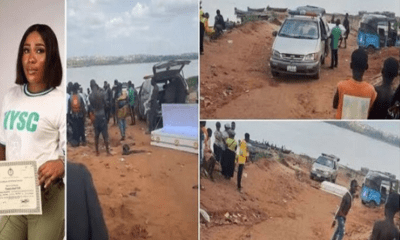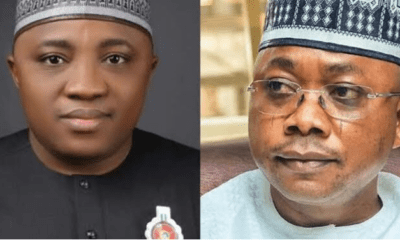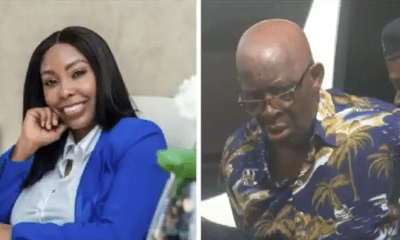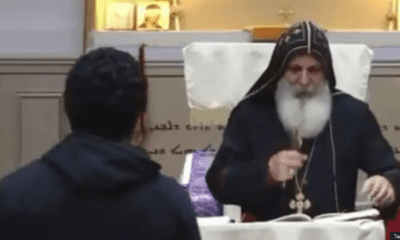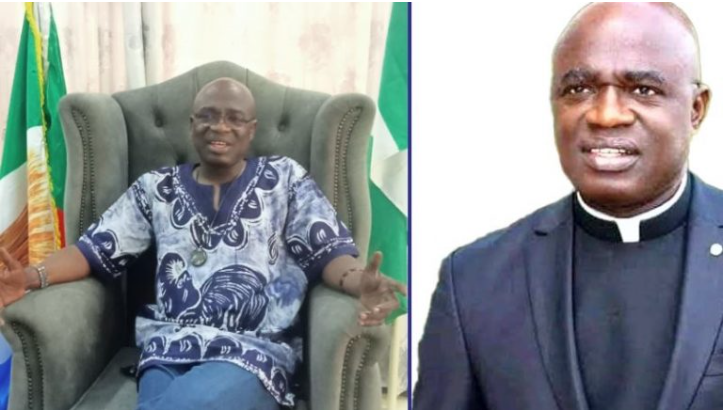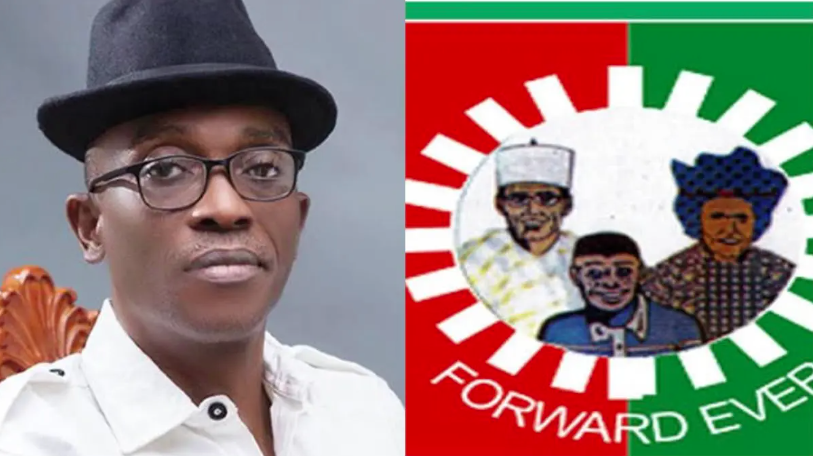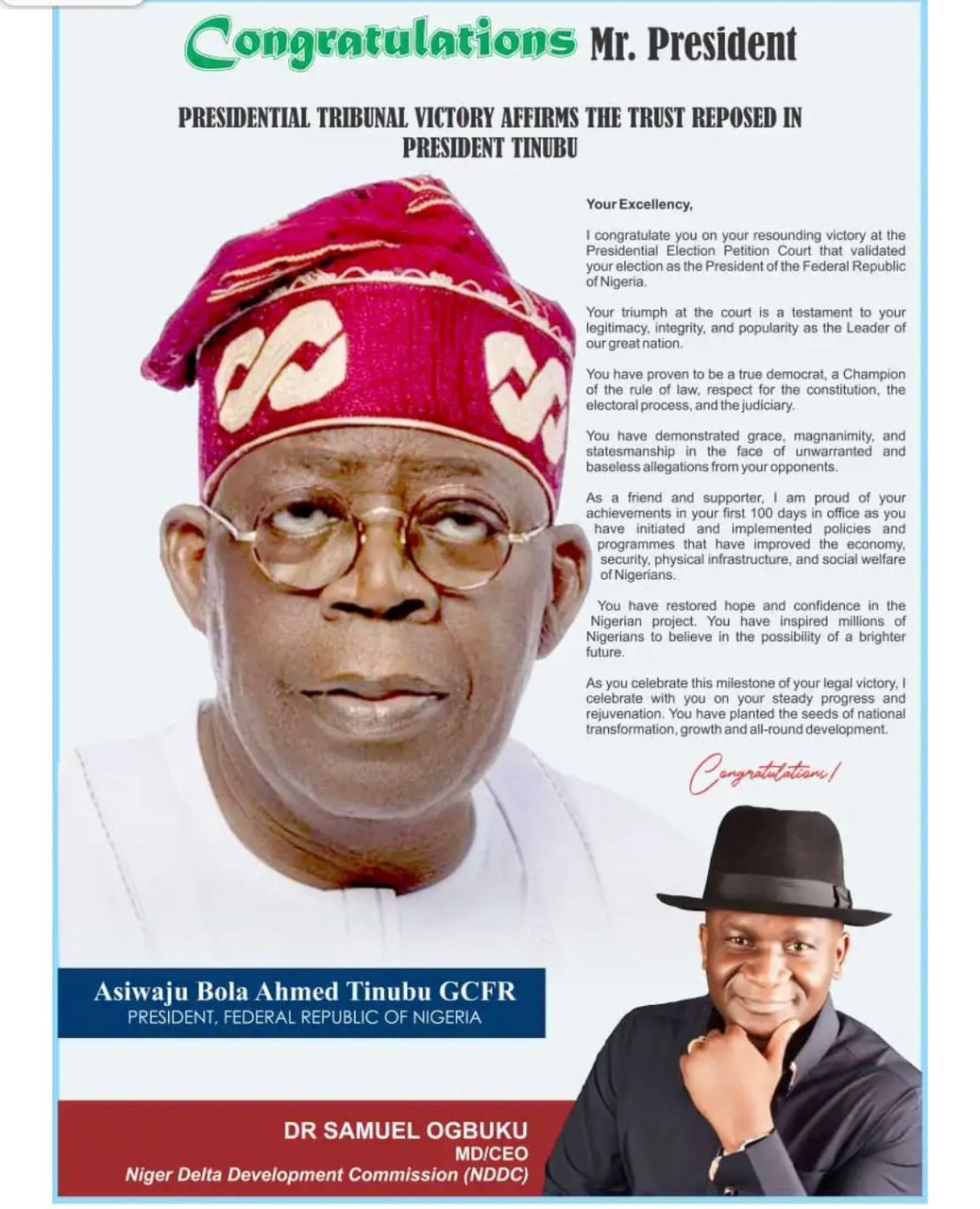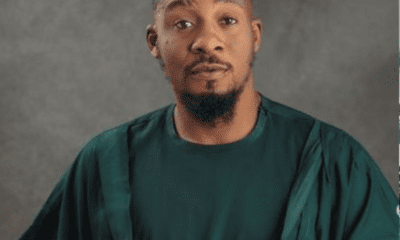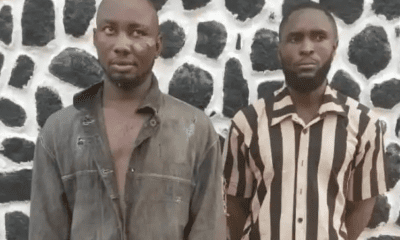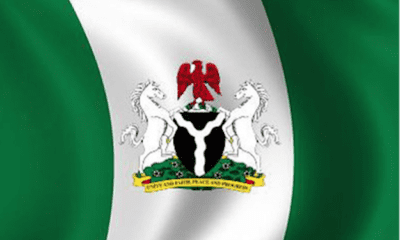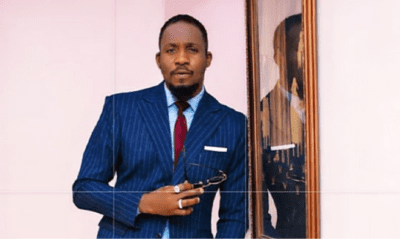“There is no cure for birth and death, save to enjoy the interval”
– George Santayana
By Paul Mumeh & Law Mefor
The wise words, “Live your life so that the Preacher won’t have to lie at your funeral,” were displayed in a particular pastor’s office sentinel. The pastor expressed his admiration for the way it would loom large over the heads of people who came to confess yet another transgression, hoping that it would persuade them to change their ways and begin to act morally upright without him having to persuade them. The man said that the longer he had been a pastor, the more he had come to understand the peculiar theology the sign represented.
It suggests to him, that some people have lived such morally upright lives that preachers don’t need to tell lies at their funerals, and that some people have also led terrible lives that leave funeral orators in a difficult situation.
David Mark’s life has always been an open book. Even his detractors have to admit that he is a man who has elevated his life to such an extent that he has left profound imprints on the sands of time.
Given David Mark’s sprawling personality, it would take many books to tell his entire narrative. Mark has essentially dominated two worlds like a colossus; politics and the military, where he has played prominent and historic roles. He left the military after attaining the rank of a Brigadier General. He was a military governor of Niger state and a minister of the federal republic in charge of communications.
Holding the positions of chairman of the National Assembly and Senate President for two terms of eight uninterrupted years, [2007–2011 & 201 5], he oversaw politics as the head of the legislative arm of the government in the nation’s presidential democracy.
This made him the most tenured senate president in Nigerian history. David Mark stands out as exceptional and singular because he is most likely the only Nigerian to have achieved the combined rankings so far.
Indeed, how one chooses to tell his story will depend on both the main thrust and point of view of the storyteller. John Godfrey Saxe (1816–1887), an American poet, provides related useful insights in The Blind Men and the Elephant. In the fable of The Blind Men and the Elephant, a group of blind men who had never seen an elephant before learnt about it and develop an imaginary image of it through touch. Though only one section of the elephant’s body — the side or the tusk, for example — each blind guy senses a distinct part of it. Published in 1873, The Blind Men and the Elephant, is a poetry and rhyme collection by John Godfrey Saxe. The poet based his moral tale, which is really more of a parable disguised as a rhyme; on an Indian fable he dubbed a “Hindoo Fable.” That ballad was really lovely. It tells a story and offers a framework that bestows on the narrative its intended, deep lesson—just as David Mark’s current account portends.
The story of The Blind Men and The Elephant serves as an example of how conflict and misunderstanding can result from our unique perspectives, or what Peter Senge refers to as our “mental models.” The purpose of this account on David Mark is to provide
an alternative viewpoint to those provided by previous and subsequent writers on this quiet and gentle giant.
It is acknowledged that although an individual’s subjective experience and opinion may be accurate, they may still be constrained by a lack of comprehensive knowledge about the subject. Because of this, the blind men’s accounts of the elephant varied from one another and were based on their limited experience. The blind men did not exchange blows because of this understanding. The parable’s lesson is that people often assert absolute truth based on their own constrained, subjective experiences while ignoring the constrained, subjective experiences of others that may be just as accurate. The tale was first popularised in the ancient Indian subcontinent, from whence it spread abroad.
If this description of David Mark turns out to be only a portion of the gentle giant and his amazing times, be willing to overlook its shortcomings.
Let researchers and histographers of the future fill in the blanks. We also think that David Mark would compose a note on himself before going away at the end of life, which is an inescapable fate that awaits all mortals at some point.
Suffice to submit that Mark’s accomplished sojourn in the military, his political engagement and achievements as a leader of the legislative arm of government is a study in brinkmanship.
On April 8, 1948, Pa Mark Aikuta and Madam Eyum Mark welcomed a baby boy into their home. He was given the name Alechenu, which means “the unexpected.” Later on, the local Catholic Church baptised him as David. The parents worked in farming and trading, which were typical vocations of the Serene Otukpo community in Benue State.
David Mark was raised as a devoted Catholic Christian, a faith he has adhered to throughout his military service, career in politics, and retirement. Aware that childhood is the foundation of life; his parents took great care in raising him as their first child.
David Mark, as he is more commonly known in adult life, is a unique individual who was shaped by a combination of hard work, good upbringing, divine providence, military training, and intellectual rigor. He is like an octopus with numerous tentacles. His extraordinary life story serves as a powerful reminder that anything is possible for someone who works hard and has faith in God.
David Mark would undoubtedly have passed as just another one of the many people who came through this life unheard and unsung if he had accepted his father’s origins and decided not to battle for a noble name. Instead, he fought for the opportunity to earn a noble name. He has elevated his fame to the point where, when the time comes, he would have left deep indelible imprints in the sands of time, making him a household name today.
Given his birth circumstances, Mark knew that no one achieves overnight success without hard work, diligence, and perseverance. While others slept, he was working hard. And in the end, his diligence paid off, with heavenly hands acting as his engine.
St. Francis Catholic Practising School, Otukpo was where the young David Mark enrolled and completed his elementary education. Mark received excellent formative years at the Catholic school, which helped him lay the solid intellectual, philosophical, and educational foundations of his future.
David Mark’s military training and foundational education began at the Nigerian Military School (NMS), Zaria, which was where his tough, uncompromising discipline style originated.
David Mark’s set arrived at the Nigerian Military School (NMS) in May 1961 where his early years were further shaped. He was among the first group of boys to take the WAEC examination in 1965, and they did remarkably well.
David Mark was among the best graduates of the NMS, and after graduating with flying colours from that institution, everything was in place for him to enlist in the Nigerian Army . To adequately develop his military career as an officer, Mark was admitted to the Nigerian Defence Academy (NDA, 3rd Regular Course), Kaduna as cadet in 1967. He graduated from the academy in 1970. As it happened, his NDA graduation marked just the start of an extensive journey through the world of military elite training in his field of study — military communication and engineering.
When young Mark came to NDA as a cadet, the basic knowledge he had gained at NMS proved to be quite helpful. He was well aware of the fundamental principles of army culture, which include honour, integrity, bravery, responsibility, devotion, and selflessness.
In 1970, Lieutenant David Mark continued his education at the School of Signals in Blandford, England. Part of the Defence School of Communications and Information Systems in the United Kingdom is the military training facility known as the Blandford School of Signals.
After being promoted to Captain and given a new commission upon his return to Nigeria in 1971, he enrolled in combined training programmes at the Military College of Telecommunication Engineering Mhow and the College of Military Engineering Poona in India. He completed this training between 1971 and 1975, earning a B Eng. – Telecoms and becoming qualified to work as both a military and telecommunication engineer in 1975.
When Captain David Mark completed his Militating Engineering course in India, he returned to Nigeria. At the age of 27, he received a promotion to the rank of Major and was assigned to the 3rd Marine Division at Port Harcourt, where he was Commander of the Division’s Signals, under Lieutenant General Theophilus Yakubu Danjuma, the General Officer Commanding (GOC). His duties were expanding, and this time they included organising the commanders and men in the Brigade in addition to sports and welfare.
In addition to leading the way in educating other officers in a variety of roles, Mark made a strong push for more professional training in the UK, India, and Nigeria. In addition to this, he holds the following degrees: B Engr – Telecoms – 1975′ , Psc+ – 1979, fwc, fss, a Diploma in Defence Studies (1991), a Diploma in Senior Defence Studies (1992), and more.
Later on, Major General Muhammadu Buhari and Brigadier General Tunde Idiagbon came to power during the military takeover in December 31, 1983. David Mark, who by then had already been promoted to Lieutenant Colonel, was chosen by Buhari to serve as the military governor of Niger State because of his exceptional leadership abilities.
Few people in Niger State’s history of leadership are as warmly remembered as David Mark.” This encapsulates the significance of Lt Col David Mark’s groundbreaking tenure as governor of Niger state.
His influence in Niger state is still visible today, many years later, in a variety of fields, including education, infrastructure, industrialisation, agriculture, sports, health, and media development.
As the Military Governor of Niger State, Governor Mark’s leadership style was distinguished by audacious plans, deeds, and gallant endeavours. He disregarded unproductive custom, bureaucracy, and other inconsequential factors in order to attain tangible results. He is a man of integrity and a fearless strategist who was committed to achieving goals at all costs and by all means necessary and lawful.
Following yet another military coup in Nigeria in 1985, General IBB was installed as the country’s military president. He put together an excellent team to handle all aspects of Nigeria’s economy, politics, and well-being, including the type of government the country would resume after the military leaves office.
Babangida sought for the brightest minds capable of innovation to further his ambition of taking Nigeria in a totally new direction and opening up its economy to the outside world. One of the persons Babangida chose was David Mark, who was redeployed from Niger State.
Babangida needed a true specialist to revamp the nation’s communications system and introduce the technologies required to get the nation into the emerging digital and global information networks since communication was essential to his ambitions. Babangida, the previous military ruler, displayed his ability to fit round pegs into round holes when he appointed Col. Mark as the minister of communications.These were some of the best appointments in the country’s political history.
As was to be expected, Col. Mark brought about drastic changes, innovations, and reforms after being appointed Federal Minister of Communications.
David Mark was retired from the Nigerian Army by General Sani Abacha, the supreme military leader of Nigeria in 1993. After going into exile in Ghana and then England, Mark returned to the country upon Abacha’s death in 1998.
When Mark returned from exile on September 5, 1998, his Idoma people of Benue state welcomed him with great fervor and he became their leader, expected to fulfil their hopes and dreams and win their support to run for the senate and represent them.
The Idoma elites rolled out the drums to welcome the soldier from exile; the masses and the progressives wing of the political elite were part of the frenzied reception that attended his home-coming. They knew that being in exile for five years only confirmed him as firm believer in democracy and true son of Idoma land.
After Mark became a member of the Peoples Democratic Party (PDP), he was eligible to run for Senate. He was chosen to represent the Benue South Senatorial District under the PDP’s banner in the April 1999 senatorial election, which he easily won. He was sworn in as a Federal Republic senator in June 1999, 2003, 2007, 2011, and 2015. During his tenure in the Senate, he held a number of responsibilities, including chairman of the Joint National Assembly and Senate President, which he held for a record eight years.
Sen. Mark prevailed over George Akume, the previous governor of his State, in a keenly contested Senate election on June 5th , 2007 to become the President of the Senate . He polled 69 votes against Akume’s 39. One senator was absent. As a result, he took the oath of office as the Federal Republic of Nigeria’s 12th President of the Senate.
As Senate President, Mark exuded a strong character and dignity, elevating the position to the highest regard that the public has ever given it. He so cleared the Senate of the “banana peels.” His administration was the first to return billions of Naira (28 billion) of unspent public fund to the national treasury in 2008. Significantly, Senator Mark demonstrated a shared preference for excellent legislation, manners, social elegance, and the guts to stand up for what is right and follow his conscience. Mark was seen by Nigerians as the embodiment of the country’s presidential democracy.
On Tuesday, February 9, 2010, a new terminology was added to Nigeria’s political lexicon. This date will remain a significant landmark in Nigeria’s political history as Senator Mark put the existing laws to the test in order to create a safety net for Nigeria’s ongoing existence as a single nation through the Doctrine of Necessity. The impending constitutional crisis, political unrest or a deadlock that had engulfed the country prior to the installation of a new leadership was broken by just one act. The “DOCTRINE OF NECESSITY” authorised Vice President Goodluck Jonathan to act as president in order to address the constitutional crisis orchestrated by the absence of ailing President Musa Yar’Adua.
The Doctrine of Necessity serves as the foundation for the legitimacy of extraordinary measures taken by the administrative authority to maintain or restore order, even when those measures were not contemplated by established constitution, laws, customs, or norms.
When Senate President Mark took office in 2007, he demonstrated an extraordinary level of dedication and perseverance to the promise he made to Nigerians to offer meaningful legislative leadership.
Under his leadership, the Nigerian National Assembly broke the jinx by altering the 1999 constitution for the first time, which set the stage for the nation’s democracy to flourish and gradually return to federalism. This wasn’t achieved by the two previous senates preceding his.
Senator Mark, a former president of the Senate who was still serving at the time, announced his plan to run for president in 2019 on the platform of PDP. He sparked a lot of curiosity when he picked up his Presidential expression of interest and nomination forms at the party’s national secretariat in Abuja.
After purchasing his forms, he spoke with journalists and pledged to address the socio-political, economic, and security issues endangering the nation if elected. Additionally, he pledged that if given the chance, he would start the process of reorganising the nation. Though he lost in the PDP’s primary elections, he continues to serve the party and the nation at large as a peace ambassador .
Ado, Apa, Agatu, Obi, Oju, Ohimini, Ogbadibo, Okpokwu, and Otukpo are the nine local governments that make up the Benue south senatorial zone . At least one developmental project targeting the generation of jobs for rural areas and addressing the nation’s high rate of youth unemployment was established by Mark in each of the local government areas.
Mark placed a high value on economic empowerment. He created a revolving trader’s loan programme with zero interest to help the women expand their enterprises. He knew that in order to be supported, the majority of small business concerns required an improvised capital base. This action significantly enhanced inclusive growth and economic development.
Mark prioritised education when it came to youth development. With a focus on youth education, he established the David Mark Scholarship Scheme (DMSS), under which, since 1999, annual scholarships have been given to students enrolled in primary school through universities which has benefitted thousands.
Senator Mark constructed and donated a building for the National Open University of Nigeria (NOUN) study centre in Otukpo, Benue State, as a symbol of his dedication to providing education to his people. Within his Benue South Senatorial District, he has constructed and refurbished numerous school blocks in each of the nine local government areas.
Senator Mark sponsored numerous projects in the Senate, chief of which was the Act for the Establishment of the Federal University of Health Sciences, Otukpo (FUHSO). The university was eventually established as a result of President Muhammadu Buhari’s approval of this bill. The establishment is transforming Otukpo into a medical tourism centre and is the first of its kind in Nigeria.
Mark is an avid sportsman believes that sports should be a source of both entertainment and employment. Among many other initiatives, he founded the Apa United Football Club (male) to play in the State and National League, as well as MarkMentors Basketball Club, which is currently rated second in the National Basketball League, to support young people who aspire to advance in sports .
His annual Mark D’Ball basketball competition, has transformed the lives of numerous young people who are pursuing professional basketball careers. He also founded the football teams “Apa Queens” (female) in the same spirit.
Additionally, Mark built an 18-hole public golf course at Otukpo Golf & Country Club St. Mark Akpegede, Otukpo of Benue State, which employs a good number of people. One unique feature of this golf course is that till date, nobody pays the green fee to play. Golfers use the golf course gratis, which is unprecedented.
He equally established the Otukpo radio station Joy FM 96.5, which also provides jobs for his people and other Nigerians and has grown to be a major hub for news, entertainment, and education in the community. In Nigeria’s North Central Region, this FM is the first radio station that is privately owned.
Mark accomplished a great deal for the zone during his record- breaking eight years as Senate President. Among the projects were about 17 billion naira Otukpo Multi-Purpose Dam in Otobi-Akpa which has the dual benefits of supplying Benue South and its surrounding areas with electricity and water.
In a similar vein, students of the Mark International Golf Academy have competed internationally on behalf of Nigeria. Professional golfers provide these young men and women, affectionately known as “The Lion Cubs,” with extensive training, and they have demonstrated complete supremacy in every event in which they have competed.
On infrastructure, Mark attracted and the construction of the Loko-Oweto bridge and the road networks that connect Benue, Nasarawa, and Abuja. This project serves as a bridge connecting Nigeria’s Northern and Southern regions.
Under the Rural Electrification Projects, Mark also gave numerous towns in each of Benue South’s nine local government areas several 300KVA transformers. He believes that this would help the locals in the district thrive economically.
It is indisputable that Mark would go down in Nigerian history as a true nationalist, social and political strategist of great stature, detribalised Nigerian, and patriot. The people of Idoma and the country as a whole will always have nostalgic memories of him.
After taking stock of his political journey; senator and senate president for 20 eventful years, Mark declared that God has greatly favoured him and that he will carry on serving God and humanity in the years to come. He also said that Nigeria has treated him fairly and that he would continue to advance the course for peace and peaceful coexistence in the country whether in or out of office.
• By Paul Mumeh and Law Mefor








